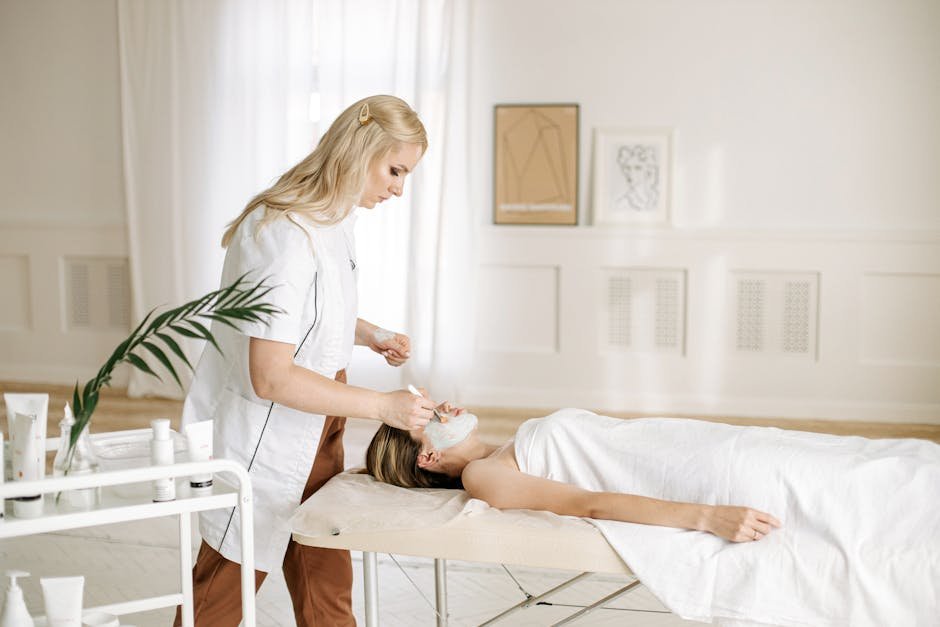Botox Alternative Treatments: How They Work and What to Expect
In a world constantly searching for the elixir of youth, botox alternative treatments are emerging as the new frontier in anti-aging skincare. Though botox has been the go-to solution for wrinkles and fine lines for years, a growing number of people are now exploring gentler, non-invasive options. This guide illuminates the path to understanding these alternatives, unpacking how they work, and setting realistic expectations for those considering making the switch.
Understanding Botox and Its Alternatives
Botox, a household name in cosmetic treatments, operates by temporarily paralyzing muscles to reduce the appearance of wrinkles. Despite its popularity, concerns over its use of neurotoxins have propelled the search for botox alternatives. These alternatives span a broad spectrum, from topical creams to cutting-edge, non-invasive devices, offering solutions that diminish signs of aging without the need for injections.
Interestingly, the shift towards alternatives is not solely driven by safety concerns. The desire for treatments that offer no downtime, are less invasive, and embody a more natural approach to aging gracefully are increasingly becoming priorities for many. As we delve deeper, it's essential to understand that while these alternatives may not offer the 'instant fix' boto Unlimited storytelling dataix promises, they contribute to long-term skin health.
The Science Behind Botox Alternatives
The science of botox alternatives is as diverse as the options available. Peptide-based creams, for example, use chains of amino acids to signal skin cells to produce more collagen, naturally filling in wrinkles over time. Other options leverage technology, such as microcurrent treatments that stimulate facial muscles, encouraging elasticity and a more youthful appearance. Understanding the science is key to demystifying how these treatments work, offering insight into their potential benefits and limitations.
Popular Non-Botox Solutions for Wrinkles
Among the myriad of botox alternatives, certain treatments stand out for their effectiveness and popularity. Hyaluronic acid fillers, for instance, are celebrated for their ability to hydrate and plump the skin immediately. Meanwhile, topical retinoids work over time to increase cell turnover, significantly reducing the appearance of fine lines and wrinkles. These treatments, along with others like chemical peels and laser therapy, offer a range of options catered to varying skincare needs and preferences.
Each alternative comes with its unique set of considerations, such as treatment frequency, potential side effects, and cost. For example, while hyaluronic acid fillers offer immediate results, they require regular maintenance. Conversely, retinoids, although effective, may initially cause skin sensitivity. Evaluating these factors is crucial in choosing the right alternative for you.
Natural Remedies as Botox Substitutes
For those leaning towards an even more natural approach, a plethora of home remedies and over-the-counter products claim to mimic botox's effects. Ingredients like aloe vera, green tea extracts, and vitamins C and E are touted for their anti-aging properties. While less drastic than their medical or tech-based counterparts, these natural remedies emphasize preventive care, hydrating and nourishing the skin to slow the aging process organically.
Comparing Effectiveness: Botox vs. Alternatives
When comparing the effectiveness of botox to its alternatives, it's essential to adjust expectations. Botox offers immediate and noticeable results, making it the treatment of choice for deep wrinkles and lines. However, the alternatives, particularly those focusing on long-term skin health, offer benefits that extend beyond mere aesthetics. Over time, they can improve skin texture, tone, and overall health, contributing to a more youthful look that ages gracefully.
What to Consider Before Choosing an Alternative
Deciding to explore boto k alternatives involves a variety of factors. Consider your skin type, the severity of wrinkles, lifestyle, and budget. Consultation with a dermatologist can provide personalized advice, helping you navigate the sea of options to find a treatment plan that aligns with your skin health goals. Remember, the best choice is one that balances effectiveness with your comfort and values.
Embracing the Future of Skin Care with Confidence
As we've journeyed through the realm of botox alternatives, it's clear that the quest for youthfulness doesn't have to be punctuated with needles. These alternatives offer a gentler approach to achieving a fresher look, appealing to those who seek methods aligning more closely with natural beauty philosophies. Whether you're considering peptides, microcurrent therapy, or the myriad of topical treatments, the key is finding the regimen that works best for you. Armed with knowledge, your decision-making process will be as smooth as the results you aim to achieve.
